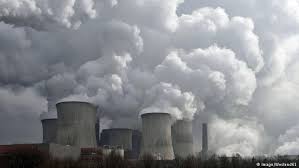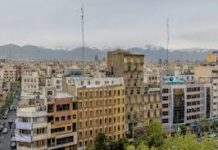World Desk
More than 6 billion people, one-third of them children, are regularly inhaling air so polluted that it puts their life, health and well-being at risk, according to a report by UN expert on human rights and the environment.
David Boyd, the author of the report said that air pollution, both outside and inside homes, is a silent, sometimes invisible, prolific killer that is responsible for the premature death of 7 million people each year, including 600,000 children.
“Yet, this pandemic receives inadequate attention as these deaths are not as dramatic as those caused by other disasters or epidemics,” the Special Rapporteur said.
“Every hour, 800 people are dying, many after years of suffering, from cancer, respiratory illnesses or heart disease directly caused by breathing polluted air.”
Boyd said that failing to ensure clean air constituted a violation of their fundamental right to a healthy environment, a right that is legally recognised by 155 States and should be globally recognised.
“People cannot avoid inhaling whatever contaminants are present in the air inside their homes or in their communities,” the expert said. “Air pollutants are everywhere, largely caused by burning fossil fuels for electricity, transportation, and heating, as well as from industrial activities, poor waste management and agricultural practices.”
Women and children, who in many less wealthy countries spend a lot of time at home, are disproportionally affected by indoor air pollution caused by cooking, heating or lighting with solid fuels and kerosene.
The Special Rapporteur emphasised that air pollution was a preventable problem. He called on States to abide by their legal obligations to ensure clean air, which is essential for fulfilling the rights to life, health, water and sanitation, adequate housing, and a healthy environment.
He identified seven key steps that each State must take to ensure clean air and fulfil the right to a healthy environment: monitor air quality and impacts on human health; assess sources of air pollution; make information publicly available, including public health advisories; establish air quality legislation, regulations, standards and policies; develop air quality action plans at the local, national and, if necessary, regional levels; implement the air quality action plan and enforce the standards; and evaluate progress and, if necessary, strengthen the plan to ensure that the standards are met.
“There are many examples of good practices, such as programmes in India and Indonesia that have helped millions of poor families switch to cleaner cooking technologies and States that are successfully eliminating the use of coal-fired power plants,” said Boyd. “Many actions to ensure cleaner air can be designed to simultaneously reduce the greenhouse gas emissions that cause climate change, resulting in a double dividend.”















